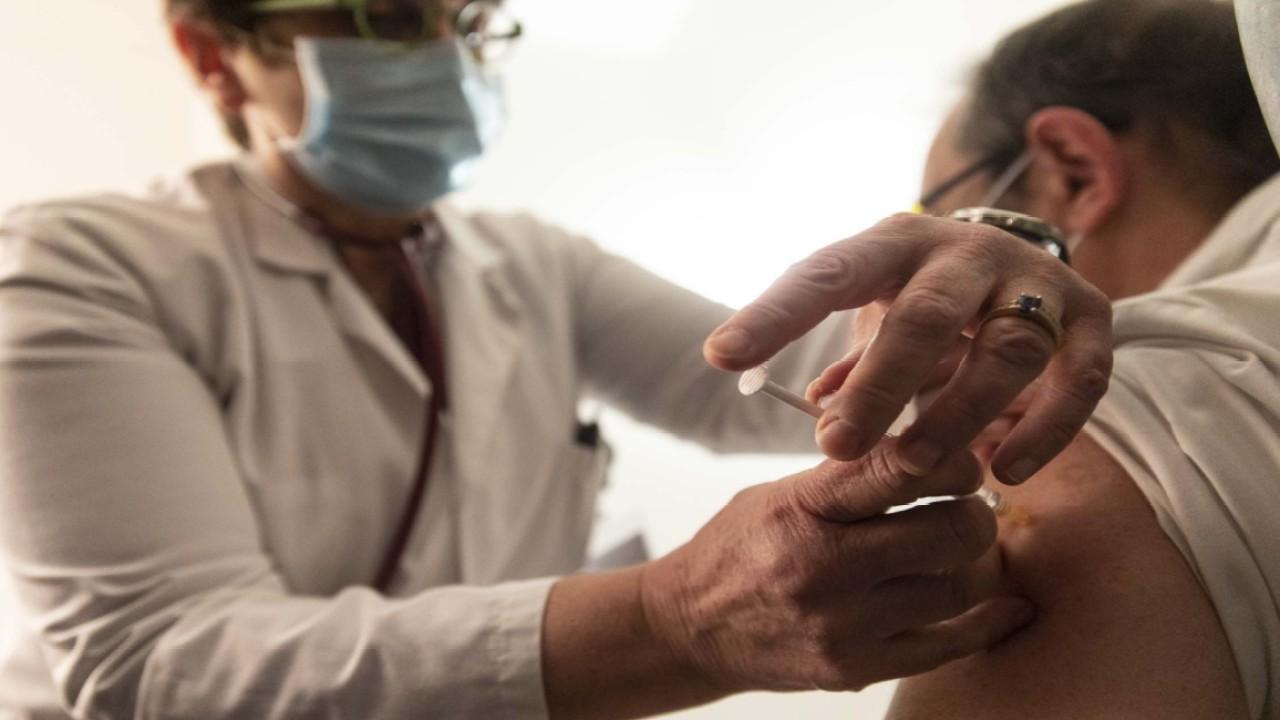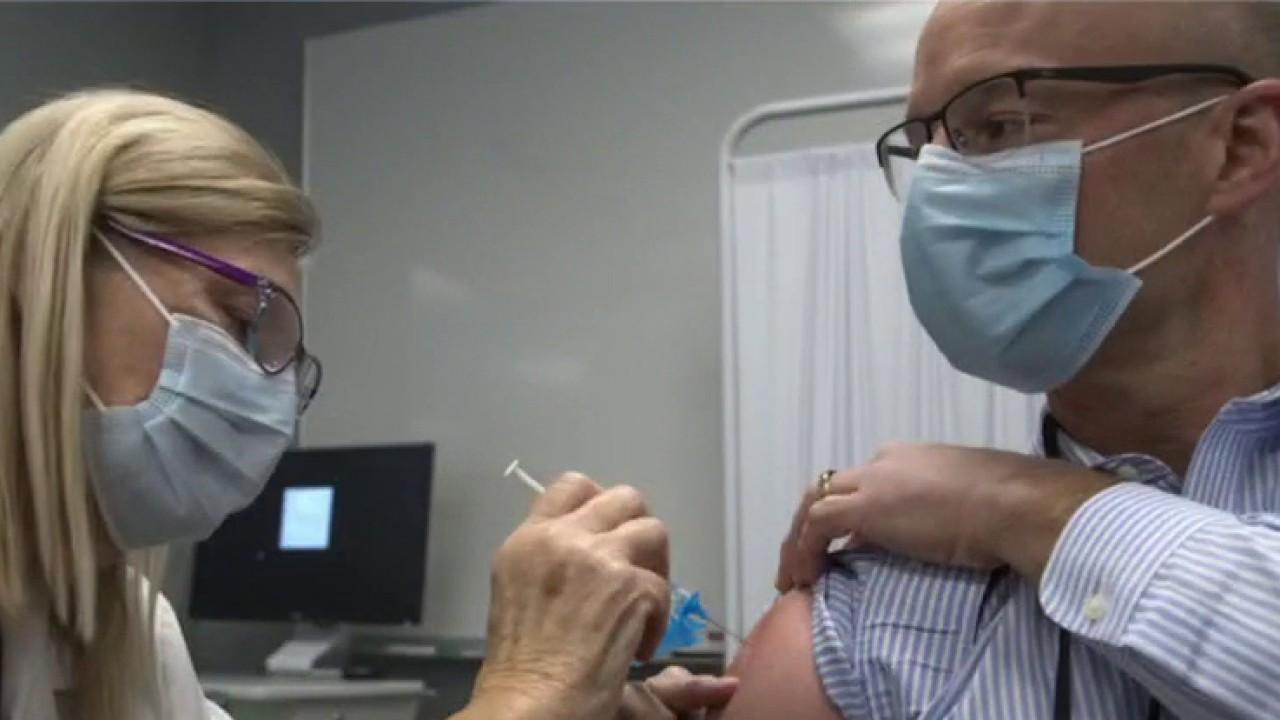EU fighting with AstraZeneca, Pfizer-BioNTech after slow deliveries of shots hamper vaccine rollout in several nations
Infections are surging, many hospitals are overwhelmed, and many of the 27 members states are struggling to get their vaccine rollout going at top speed
The European Union on Tuesday warned pharmaceutical companies that have developed coronavirus vaccines with EU aid that slow deliveries must end -- at a time when infections are surging, many hospitals are overwhelmed, and many of the 27 members states are struggling to get their vaccine rollout going at top speed.
“Europe invested billions to help develop the world’s first COVID-19 vaccines,” EU Commission President Ursula von der Leyen told the World Economic Forum’s virtual event in Switzerland. “And now, the companies must deliver. They must honor their obligations.”
The EU, which invested 2.7 billion euros in vaccine research and production for the drug companies, “means business,” she added, reflecting the heavy pressure EU nations are under to roll out vaccines.
GET FOX BUSINESS ON THE GO BY CLICKING HERE
The EU accused AstraZeneca of failing to guarantee the delivery of coronavirus vaccines without a valid explanation. It also had expressed displeasure over vaccine delivery delays from Pfizer-BioNTech. The Pfizer vaccine is already being rolled out in the EU, and the AstraZeneca one is expected to be approved this week.
The EU has committed to buying 300 million AstraZeneca doses with option on 100 million extra shots. Late last week, the company said it was planning to reduce a first contingent of 80 million to 31 million. Pfizer has said it was delaying deliveries to Europe and Canada while it upgrades its plant in Belgium to increase production capacity.
The EU has signed six vaccine contracts for more than 2 billion doses, but only the Pfizer-BioNTech and Moderna vaccines have been approved for use so far.
The EU is preparing a system of strict export controls on all coronavirus vaccines produced in the bloc — raising the specter that doses could have trouble leaving the EU until its own orders are fulfilled. The commission insists it is basically to monitor whether companies respect their commitments to the EU.
The biggest EU member state was firmly behind von der Leyen’s view — and batted away any suggestion the EU was looking for special treatment.
“With a complex process such as vaccine production, I can understand if there are production problems — but then it must affect everyone fairly and equally,” German Health Minister Jens Spahn told ZDF television. “This is not about EU first, it’s about Europe’s fair share.”
CLICK HERE TO READ MORE ON FOX BUSINESS
The EU, which has 450 million citizens and the economic and political clout of the world’s biggest trading bloc, is lagging badly behind countries like Israel and Britain in rolling out coronavirus vaccine shots for its health care workers and most vulnerable people.
While about 10% of the U.K. population has gotten at least one dose, that figure hovers around 2% overall or lower in a great many EU nations.
That’s despite having over 400,000 confirmed virus deaths since the pandemic began.
Still, the delays in getting vaccines will be make it harder to meet early targets in the EU’s goal of vaccinating 70% of its adults by late summer.





















